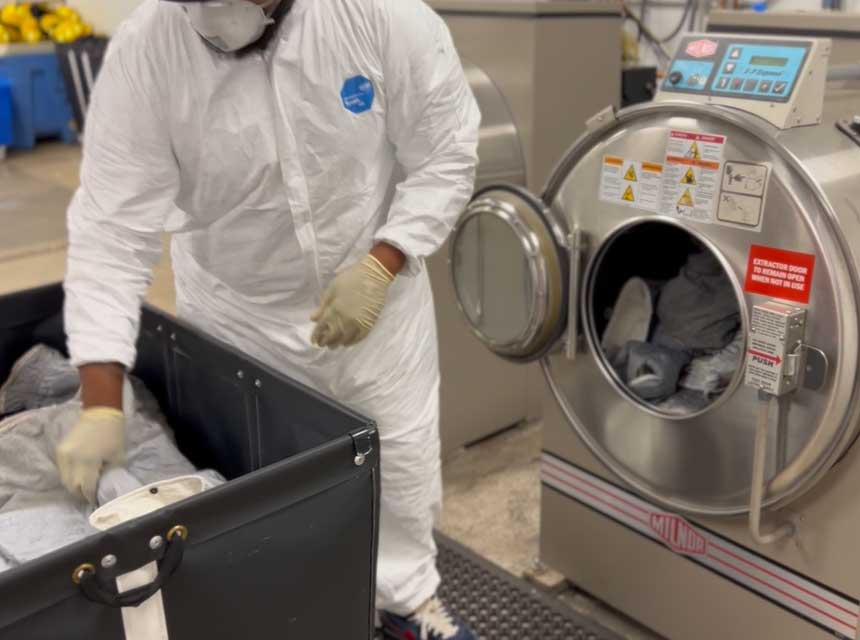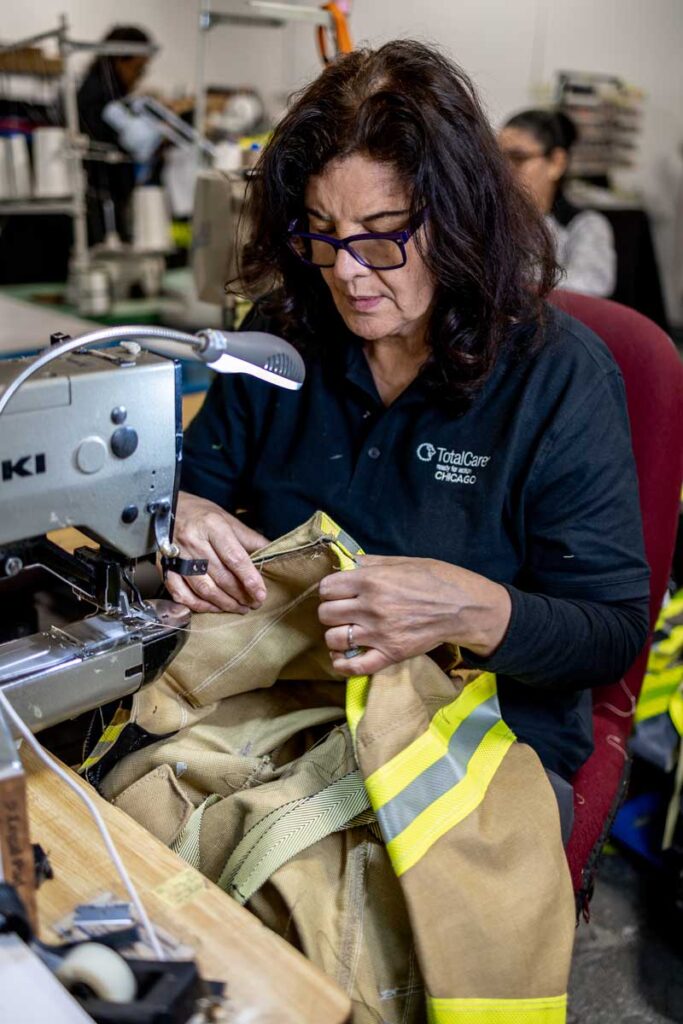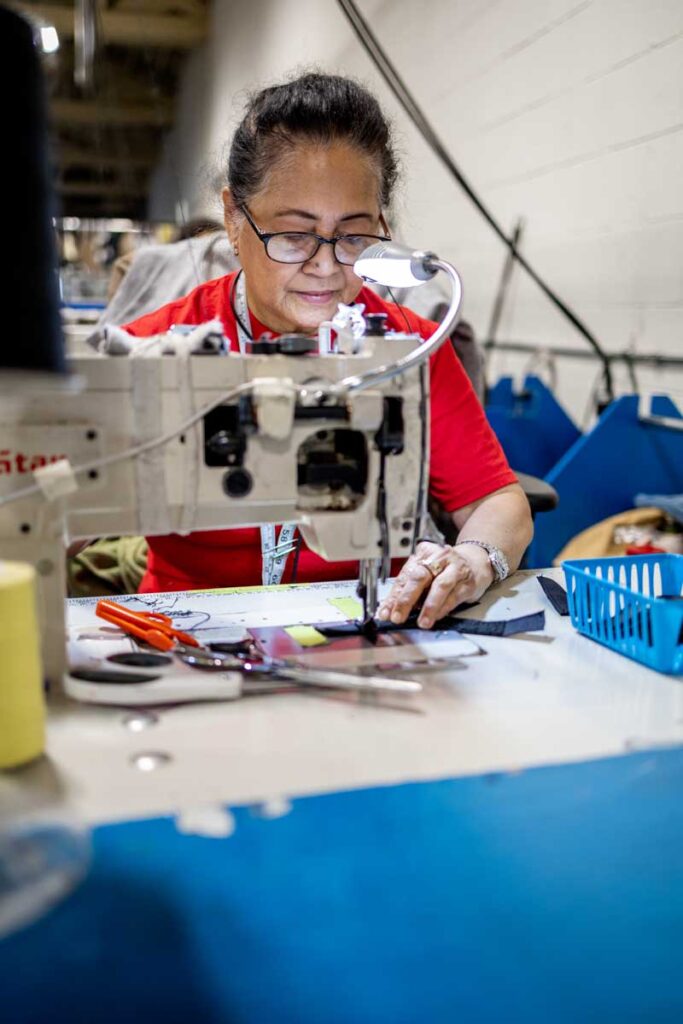

LION presents a three-part series of articles exploring how LION makes products for the three stages of the firefighter experience: BEFORE, DURING, and AFTER an incident or event. Our commitment is to provide the best products and services to support firefighters at every stage, ensuring they are always ready for action.
This article is the third in this series.
In recent years, with the proliferation of more toxic building materials, chemicals, gases, and particulates, cancer has replaced heart attack as the leading cause of firefighter occupational death. LION’s “Not in our House” initiative is dedicated to helping firefighters reduce their risk of job-related cancer.
This mission has led to the following three-pronged LION TotalCare® approach to caring for personal protective equipment (PPE) and staying in compliance with NFPA 1851, 2020 edition:
- Advanced Cleaning
- Advanced Inspection
- Repair
Per NFPA 1851, advanced cleaning, inspection, and repairs shall be performed by appropriate vendors and organizations (refer to NFPA for specifics). TotalCare is one of those approved options for fire departments as a verified ISP.
Verified ISPs and manufacturers are tested by a third-party agency, such as UL Solutions, who is the same agency that certifies the manufacturing process and performance requirements of new turnout gear. Verification is a rigorous process that involves a field tech visit to the ISP facility, monitoring of the cleaning, inspection and repair process, lab testing, and confirming that the procedures specified in the quality control manual are being followed. Verified ISPs use OEM materials, follow specific sewing stitch counts, and professionally train their sewing operators.
To find additional verified ISPs, visit the Verified Independent Service Provider Association (VISPA).
Advanced Cleaning
Firefighters are constantly exposed to carcinogens in all phases of fire response. Harmful chemicals can be in smoke and soot during fire suppression and overhaul. Contaminants can penetrate the layers, become trapped in fibers of turnout gear, and remain there until cleaned. Conventional firefighting gear cleaning methods, including water washes with extended drying periods, provide limited decontamination results.
NFPA 1851 requires fire departments to perform advanced cleanings of turnout gear every 6 months or as soon as possible after exposure to smoke, body fluids, or hazardous substances. LION offers two cleaning systems in their TotalCare offering:
Ozone cleaning attacks organic soils and kills germs, viruses, and bacteria 3,200 times faster than chlorine bleach, while being completely biodegradable and 99.999% effective. Powerful oxidation properties use ambient water temperatures to reduce the washing and drying cycles and minimize turnout wear and tear. Ozone cleaning is a standard cleaning method for all LION TotalCare facilities.
RedZone CO2 Clean uses reduced agitation and a lower cleaning temperature and has no harmful cleaning chemicals. RedZone CO2 Clean is odorless and uses liquid CO2 to penetrate between the fibers to remove toxins, harmful chemicals such as lithium-ion, poly-aromatic hydrocarbons (PAHs), and volatile organic compounds (VOCs). RedZone CO2 Clean facilitates quicker turnaround time as there is no dry time. For more information, read our latest case study.
Advanced Inspection
NFPA 1851 requires fire departments to perform advanced inspections of turnout gear every 12 months or whenever a routine inspection indicates there may be a problem. Inspections are critical to reduce safety risk and potential health risks associated with poorly maintained, contaminated, or damaged gear. Advanced inspections identify and mark missing hardware, improper function of closures, garment contamination, and physical damage such as rips, tears, charring, melting, or burn holes.


Repair
Basic repairs can include fixing broken or missing stiches on the outer shell, patching for minor tears or charring on the outer shell, skipped or broken stitches, missing hardware, reclosure of moisture barrier. Advanced repairs are more complex and must be completed by a verified ISP or the original manufacturer to be compliant with NFPA 1851.
Conclusion
Whether your department wants to outsource all of its cleaning, inspections, and repairs or handle these tasks in-house, LION TotalCare can help your department keep its firefighters safe and be NFPA 1851-compliant.

